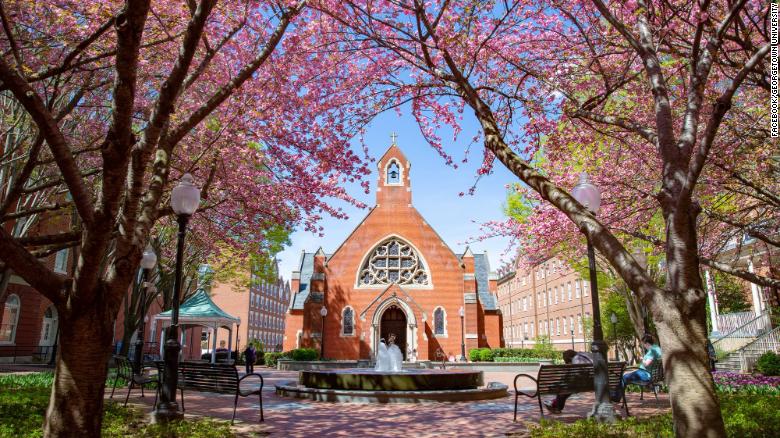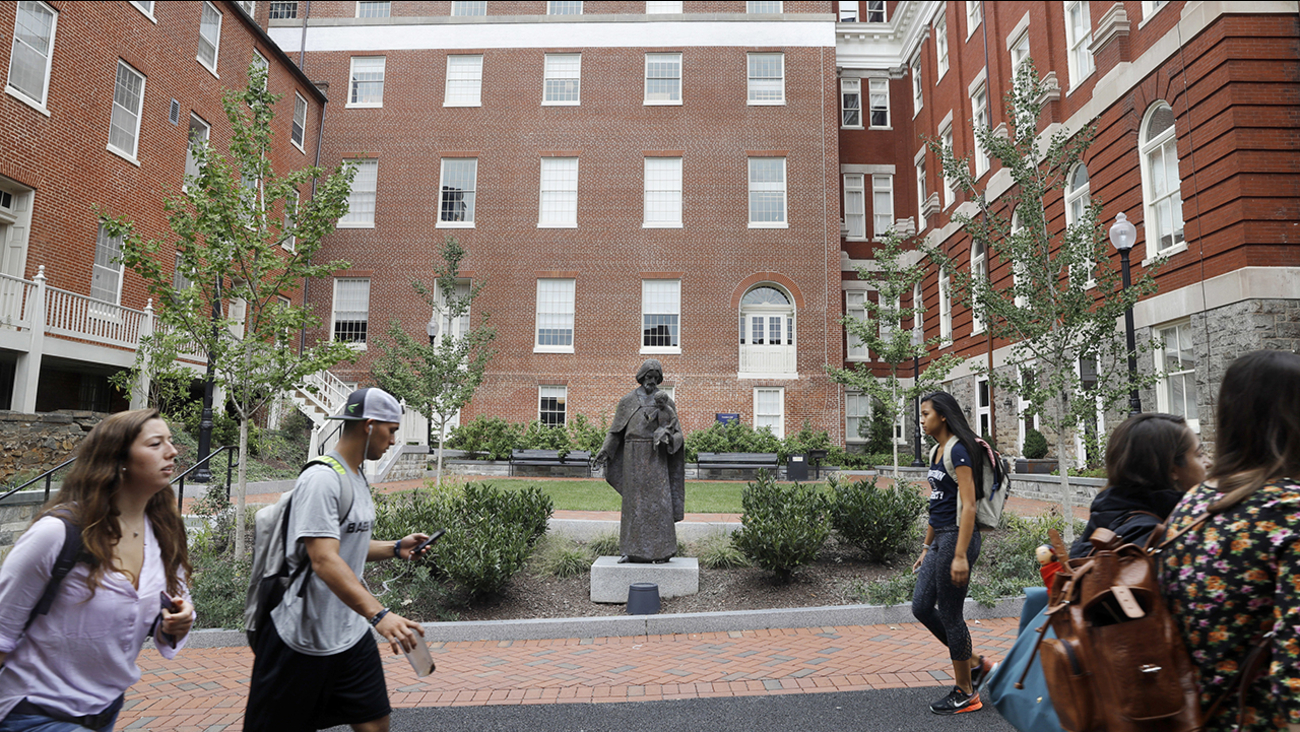
Students at Georgetown University have voted overwhelmingly to create a fund to provide reparations to descendants of 272 slaves sold to fund the school in the 19th century, a major step in becoming one of the first major U.S. institutions to provide financial restitution for a role in slavery.
More than two-thirds of undergraduate students approved the measure in online voting, which ended Thursday night, according to Georgetown’s student newspaper The Hoya. The report added that 58% of undergraduates participated, “the highest turnout in recorded student government electoral history.”
The measure was spearheaded by student activists, including some who are descendants of the 272 slaves known as the GU272 that Jesuit priests in Maryland sold in 1838 to rescue the school from bankruptcy. It would add a student fee of $27.20 per semester to provide reparations.
Georgetown administrators have said the student referendum is nonbinding, and the school’s 39-member board of directors would have to vote on the measure, according to the Hoya.
If Georgetown’s board approves, the university, in Washington, D.C., would be one of the first major U.S. institutions to create a fund for slavery reparations. The issue is gaining national attention, including in the 2020 presidential race, with some candidates calling for national studies.

Todd Olson, Georgetown’s vice president for student affairs, acknowledged the results of the vote in a statement Friday, but did not indicate where officials stand on implementing the reparations fund.
“The university values the engagement of our students and appreciates that 3,845 students made their voices heard in yesterday’s election,” Olson said. “Our students are contributing to an important national conversation and we share their commitment to addressing Georgetown’s history with slavery.”
Critics of the reparations fund have argued that it should not be current students’ responsibility to atone for the school’s past, and oppose a mandatory fee.

“A more just solution to the question of reparative justice would leave navigating the morality and personal circumstances to each individual student,” Georgetown freshmen Rizana Tatlock and Henry Dai wrote this week in an editorial for the Hoya. “For example, an opt-in or opt-out fee each year would be a reasonable way to leave the choice in the hands of the students.”
Like many American institutions in recent years, Georgetown has been grappling with its role in slavery. In 2015, school officials created a working group to evaluate how to address the school’s legacy.
In the years since, Georgetown has issued a formal apology to the descendants of the 272 slaves, announced a policy to give them priority in admissions and renamed two campus buildings, including one in honor of Isaac Hawkins, the first person listed in the 1838 sale.
Nationally, the issue of reparations has been gaining momentum. In 2014, journalist Ta-Nehisi Coates wrote a widely circulated article in The Atlantic called “The Case for Reparations,” spotlighting the issue.
Multiple 2020 Democratic presidential contenders have expressed support, including Sen. Cory Booker (D-N.J.), who this week announced legislation to study the issue. Sens. Kamala Harris (D-Calif.) and Elizabeth Warren (D-Mass.) also have called for consideration of the issue.
